#conducting
Photo


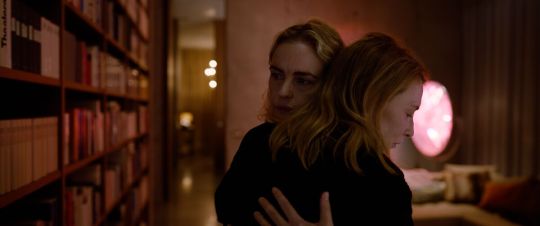
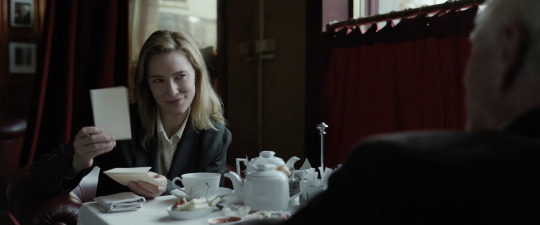
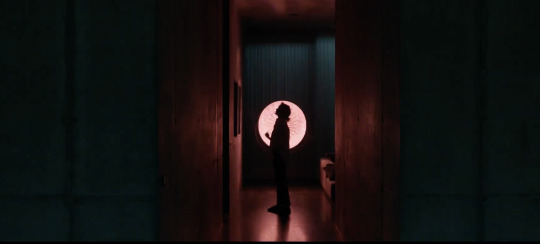
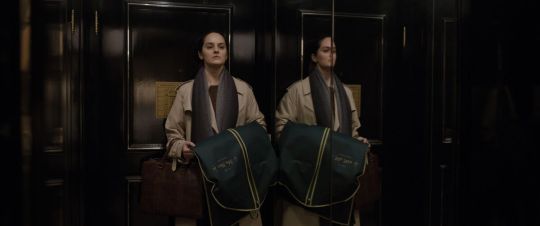
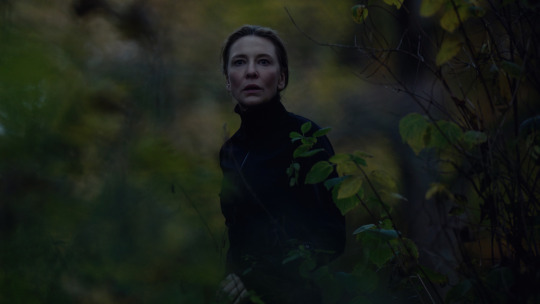
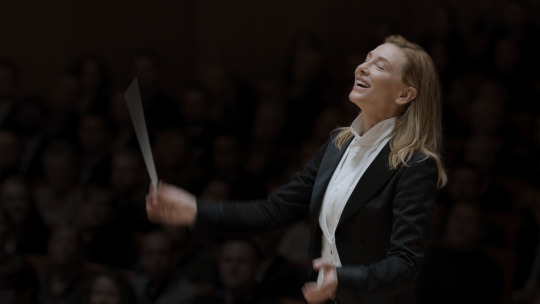
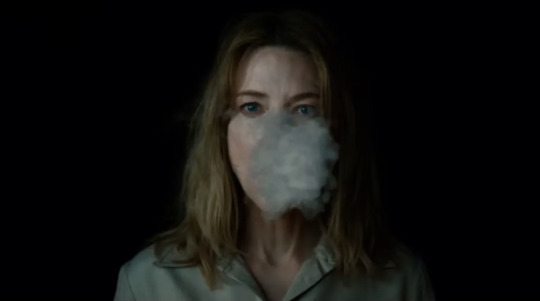
SUBLIME CINEMA #630 - TÁR
A study in controlled intensity, and a masterclass in writing, acting and directing. How refreshing to see such an intelligent film in this year of dumbed down releases - it had me hypnotized and it reminded me what great films can feel like in the theater.
Cate Blanchett somehow finds herself here in what might be her best ever role; she is commanding beyond the norm, and there are scenes and monologues here that will probably win her an Oscar. And Hildur Gudnadottir is one of the most interesting composers out there right now, the music and mood scrapes at the chalkboard and keeps creeping.
#cinema#film#films#movies#movie#tar#TÁR#cate blanchett#todd field#music#conducting#conductor#cinematography#orchestra#music film#filmmaking#filmmaker#cinephilie#subliime cinema#hildur gudnadottir#great film#classical music#classical composer#fiction#actrress#acting#writing#directing#film director#film directing
1K notes
·
View notes
Text






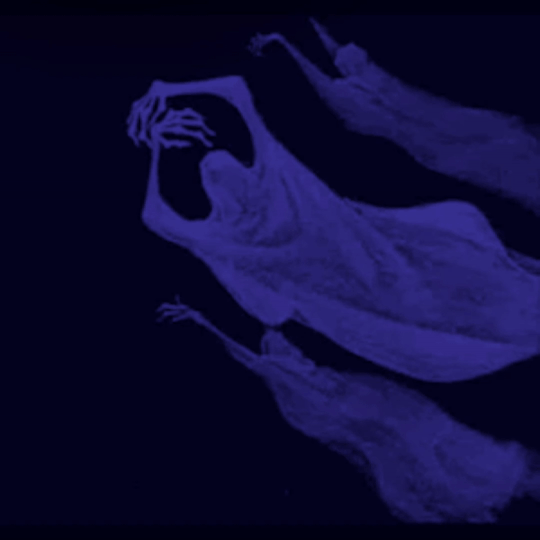


Phantom Maestro stimboard
x | x | x
x | x | x
x | x | x
#phantom maestro#goatlings#monster masquerade#ghosts#skeletons#conductor#conductor stim#ghost stim#skeleton stim#gold#purple#gold stim#purple stim#conducting
59 notes
·
View notes
Text
The self-referentiality of "reaction" videos gets a pass from me today if it means hearing Robert Ziegler reply to some streamer clip: "No, you're absolutely right, that is a mandolin," in the tone of a stern but proud schoolteacher (who happens to have conducted the London Symphony Orchestra).
youtube
11 notes
·
View notes
Text

Musical March Day 24: Conducting
If you could control your principal, what would you do?
#Musical March#Conducting#conductor#orchestra#captain underpants#dreamworks#captain underpants the first epic movie#classical music
9 notes
·
View notes
Text
I'm obsessed with this clip
Oldie but goodie
The passion and intensity that Jerry conducted with is so much fun - this is what music is all about 🎶
#jerry lewis#conducting#mr sexy conductor#rhapsody in blue#george gershwin#the jerry lewis show#this clip gets me so pumped i love it#also cheers to gershwin for writing such a banger of an orchestral piece rock n roll my dude you were ahead of the game#i never use the word banger but it felt right i feel weird but i'm going with it
12 notes
·
View notes
Text
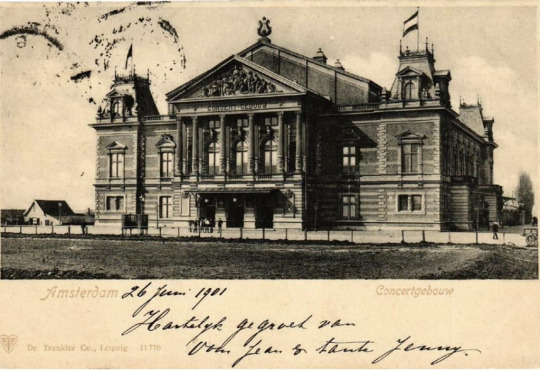
April 11. 1888 the Concertgebouw Amsterdam was opened. One of the best concert hall in the world and home of de Concertgebouworkest.
Here we see a antique postcard from 1901.
#The Royal Concertgebouw Orchestra#Koninklijk Concertgebouworkest#symphony orchestra#symphony#orchestra#concert hall#The Concertgebouw#Concertgebouw#Gustav Mahler#Mahler#Richard Strauss#Strauss#conductor#Conducting#Opera#antique postcard#postcard#bel canto#classical music#classical musician#classical studies#classical#aria#diva#prima donna#maestro#chest voice#musician#music#concert
25 notes
·
View notes
Text
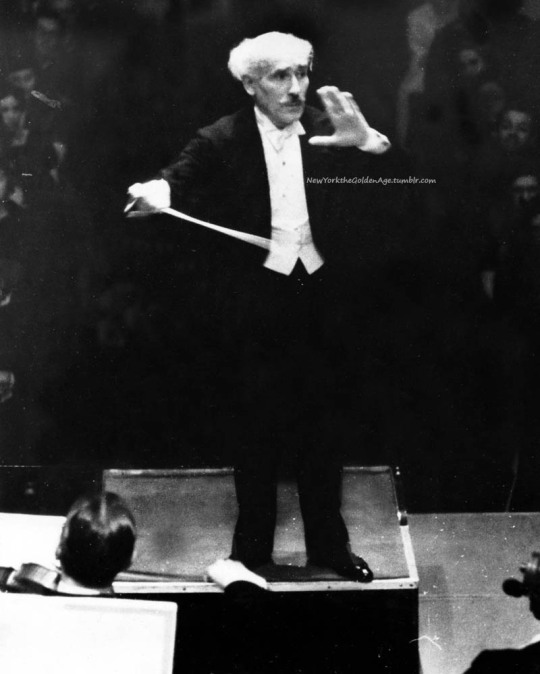
Arturo Toscanini conducts the NBC Symphony Orchestra, a radio orchestra established especially for him, on January 25, 1938.
Photo: NY Daily News
#vintage New York#1930s#Toscanini#Arturo Toscanini#NBC Symphony Orchestra#conductor#conducting#orchestra#orchestral conducting#January 25#Jan. 25
38 notes
·
View notes
Photo

Ben Britten was a man at odds with the world. It’s strange. On the surface, Britten’s music would seem to be decorative, positive, charming, but it’s so much more than that. If you really listen to (his music), you become aware of something very dark. There are gears that are grinding and not quite meshing, and they make a great pain. (For him) it was a difficult and lonely time. Yes, he was a man at odds with the world....and he didn’t show it.
- Leonard Bernstein on Benjamin Britten
Leonard Bernstein (right) talking to Benjamin Britten (left) and Peter Pears (centre), at the Museum of the City of New York, 1949.
#bernstein#leonard bernstein#quote#benjamin britten#britten#music#conducting#composing#sound#aesthetics#peter pears#arts#culture#icon
47 notes
·
View notes
Text
Notes on TÁR!
I was very excited to see Tár because I love:
Classical music
Orchestral conducting
Seeing people at pianos
Seeing people make notations on staff paper
The promise of seeing these things is more than enough to lure me into a movie theatre.
Not relevant to my excitement was:
Moral panic
I did not go in with a feeling that the movie would have interesting things to say about holding people accountable for abuses of power. This is not because I have anything against Todd Field, whose directorial/writing work I'm not familiar enough with to pass that kind of judgment. I just feel that it is a tough needle to thread, and I would have been pleasantly surprised to see it done right, and I always reserve the hope of being pleasantly surprised. I was not—not by that—but there were still things I appreciated.
BLACKWING CAMEO
That was a nice flourish of affection for the romance of composing in analog mode: the sight of a box of Blackwing pencils in LT's pencil vault. I did not get the chance to see if she had any Alpheus Music Writer pencils (LB's brand).
I would love to watch anything—documentary, affectionate feature film—about the heartache involved in being devoted to dead stock pencils.
A FAIR AMOUNT OF ORCHESTRA
The strongest feeling with which I emerged from my experience of watching Tár was that someone out there needs to win my heart by declaring themself the next Frederick Wiseman and make me a four (plus!) hour documentary that just follows the administration of a major symphony orchestra. The meetings! The committees! The sections! The drudgery! The paperwork! The tuning up! The rehearsals! The commuting! The work-life balance! The negotiations! The board! The fundraising! The music programming! Everything! This is what I want. For my money, there could have been way more orchestra.
MEETINGS IN RESTAURANTS WITH DARK PANELED WOOD WALLS AND WHITE CUPS AND WHITE TABLE CLOTHS
I did not need quarantine to teach me that there are few luxuries more poignant, significant, and comforting to me than a fancy place to get coffee, but the mere sight of people in a restaurant I'd like to be in is enough to move me to tears. The German locale specifically beat hard on the strings of my heart dedicated to Café Sabarsky.
THE RUSSIAN CELLIST
It's not my movie. Somebody else made it, it's done. But if my take had been solicited, I would have concentrated a lot more time and tension into the part of the plot that engages with the young Russian cellist who is so familiar with the games inherent in her field that she takes them on readily and with naked disdain.
VINYL GRIPES
New classical recordings should all be issued on vinyl and they never are.
PANGENDER JUILLIARD STUDENT
I cannot think of another movie I've seen in a theatre where a character has to, under duress, articulate their identity as something not-cis, and I was touched by how much the performer in the role shows that it sucks. The reactionary fantasy seems to involve a college student screaming the qualities of their identity that an unknowing authority figure ought to know, while the reality is that it is the worst thing to have to introduce and always feels like it is crawling out of you in a way that is mortifyingly unimpressive because plenty of people do not need to articulate their identities, but we do. At the same time, I did not love the scene and question its relevance. I guess that it did demonstrate LT's penchant for dying on a hill, but I am not convinced that the use of the straw man did not utterly mute the point that this character cannot meet anybody on their own terms but will mandate the terms until everybody turns over or flickers out.
(Was the scene filmed at Juilliard? It captured the building's steepness.)
INTERTIORS
I love the apartment LT shares with her family and the studio. There did not need to be any more action in this movie than somebody noodling at various grand pianos trying to manifest what they hear in their head. Of course, Cate Blanchett was great at it.
LENNY B!!!
This man had no boundaries, and his ghost winks at a way messier, more playful, more irony-soaked movie for how he endures as a platonic ideal of success. Also, the Young People's Concerts are definitive, lovingly documented proof of how engrossing it is just to watch an orchestra do what it does. I hope people who see Tár invest in the DVD sets.
#tar#cate blanchett#orchestra#conducting#conductors#music#classical music#music movies#piano#composing music#blackwing#tár
53 notes
·
View notes
Photo
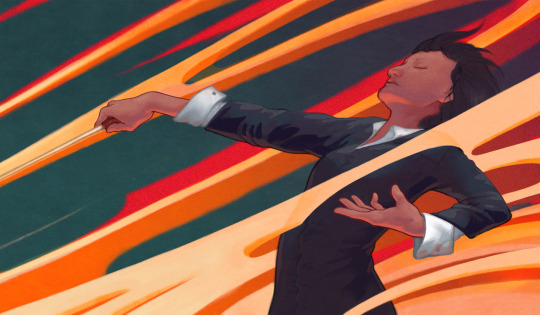
Why Are There so Few Female Conductors?
For women, the symphony is not so different from the boardroom
It’s one thing for a woman to be playing second oboe or viola, a neat figure in black wedged in the orchestra pit. It is another for her to be the head of that tuxedoed flock, commanding them with a wave of a baton. The politics of the symphony may be obscure, but the prejudices women face as they vie for the podium exist across the entire spectrum of professional achievement.
Read more at thewalrus.ca.
Illustration by Ashley Mackenzie (ashmackenzie.com)
#Music#Orchestra#Conductor#Conducting#Tár#Illustration#January/February 2017#Danielle Groen#Ashley Mackenzie
13 notes
·
View notes
Text
Richard Strauss, Ludwig van Beethoven and Carl Orff step out of the time machine into the
fabled city of Nalanda, India (5th-12th century CE)
As the time machine whirs and hums, its passengers brace themselves for the unknown. Richard Strauss, the renowned German composer, adjusts his elegant suit, careful not to stain it with any remnants of time travel. Ludwig van Beethoven, the musical genius, clenches his fists, ready for whatever awaits them. Carl Orff, the innovative composer, twirls his bowler hat in anticipation, his…
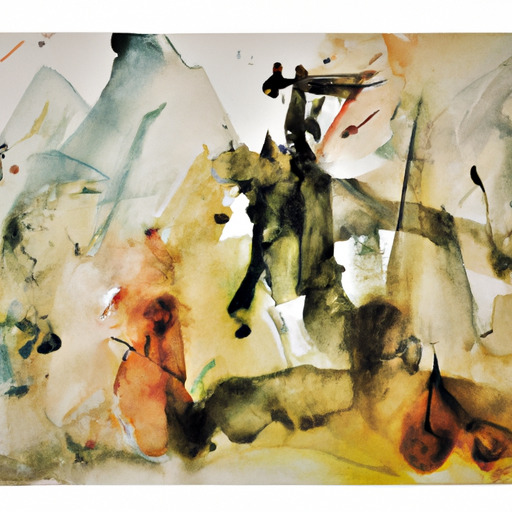
View On WordPress
#adventure#CarlOrff#celebrities#ClassicalMusic#composer#conducting#Culture#fame#fusion#harmony#India#inspiration#instruments#Intellectual#journey#LudwigvanBeethoven#Music#Nalanda#pagodas#piano#powerofmusic#RichardStrauss#sarais#spiritual#symphony#temples#TimeMachine#travel
2 notes
·
View notes
Text
Things I’ve heard in my marching band #1
Conducting instructor: “if you hit the griddy I’m going to hit you”
6 notes
·
View notes
Note
Hello Maestro! I told you once that I sing in the university choir. I have always admired and admire our conductor... You also had a period in your life when you conducted an orchestra, right? How is it? Did you like being a conductor? Tell me all about it.
Good evening my dear pupil.
I am a conductor as much as a musician - but, more than that, a composer.
I have been Kapellmeister for ten years in Weimar, from 1848 to 1858, although the place had been reserved for me in 1842, under Carl Friedrich. In many occasions I have directed for this or that event, in the period of my life which separates the years of travelling from those of teaching.
Guiding an orchestra is as leading people to war, albeit only spiritually, and governing their souls at the same time; no matter the caricatures or the divertissements on my person as conductor, enjoying it deeply, I only feel limited and sorrowful in that when words cannot drive my intention to my musicians. In Weimar they remember me still. I should have a picture somewhere...
Mehr blau, meine Herren!
4 notes
·
View notes
Photo

Karikatur einer Künstlermähne? Christoph Brech fixiert die Handbewegungen von Mariss Jansons. Foto: Christoph Brech
5 notes
·
View notes
Photo

2 notes
·
View notes
Text
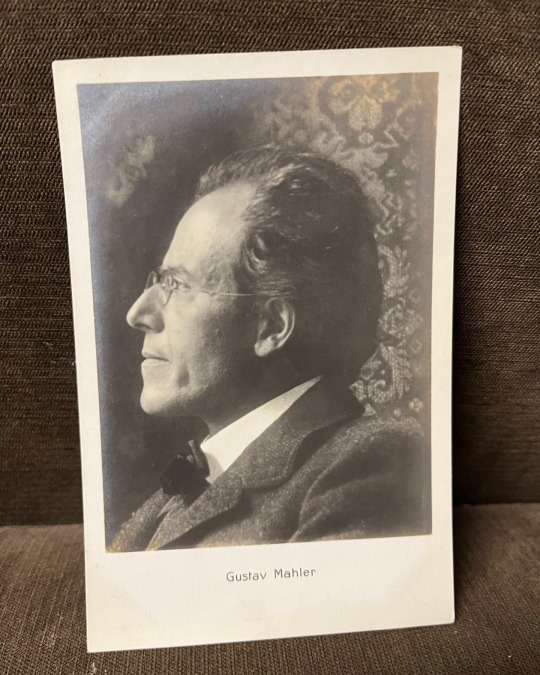
OTD in Music History: Conductor and composer Gustav Mahler (1860 - 1911) dies of pneumonia (which was almost certainly induced by a bad case of bacterial endocarditis) at a Viennese sanitorium.
After a legendary 10 year reign as the Director of the Vienna Court Opera, Mahler left Vienna for America and made his debut at the Metropolitan Opera in January 1908, presenting Richard Wagner's (1813 - 1883) "Tristan und Isolde" (1865) to great acclaim.
Mahler's first season at the Met was a triumph, and, upon his return to Austria in Summer 1908, he promptly composed "Das Lied von der Erde" ("The Song of the Earth").
In his second season at the Met in 1909, however, Mahler had to share the podium with a young superstar: Arturo Toscanini (1867 - 1957). Tensions created by this situation ultimately led Mahler to resign the position and instead accept the conductorship of the New York Philharmonic.
Back in Europe for the Summer of 1909, Mahler quickly completed his Ninth Symphony.
Mahler found his only season with the Philharmonic extremely taxing, and, after the season ended with heavy financial losses for the organization, he retreated once more to Europe for the Summer of 1910. It was during that break that Mahler worked on his unfinished Tenth Symphony, completing the Adagio and drafting four more movements.
Shortly after he returned to New York in late October 1910, Mahler began suffering from a severe sore throat; he gave his final concert on February 11, 1911, while suffering from a temperature of 40 °C (104 °F). After weeks confined to bed, he was diagnosed with bacterial endocarditis – which was often fatal before antibiotics -- and sailed back to Europe...
PICTURED: An uncommon c. 1920s real photo postcard, showing the middle-aged Mahler in profile. This photo was one of a famous set that was taken of Mahler towards the end of his tenure in Vienna.
#opera#classical music#music history#bel canto#composer#classical composer#aria#classical studies#Gustav Mahler#Mahler#Romantic composer#conducting#conductor#director#concert#Symphony#Rübezahl#Sonata#Piano#Suite#Cantata#Song#Resurrection Symphony#Spring Morning#Memory#Serenade from Don Juan#chest voice#classical musician#musician#music
15 notes
·
View notes